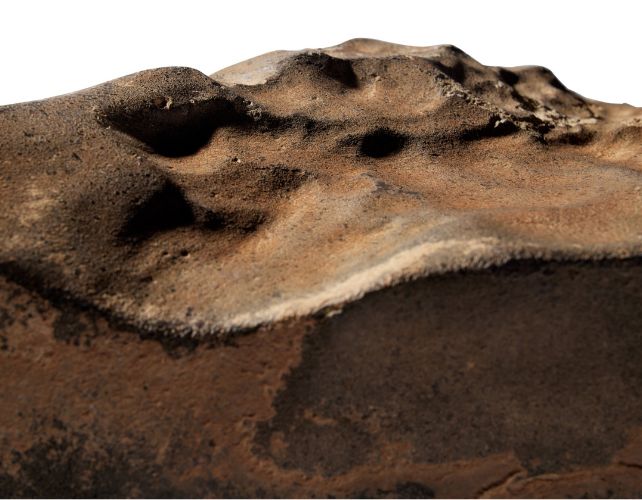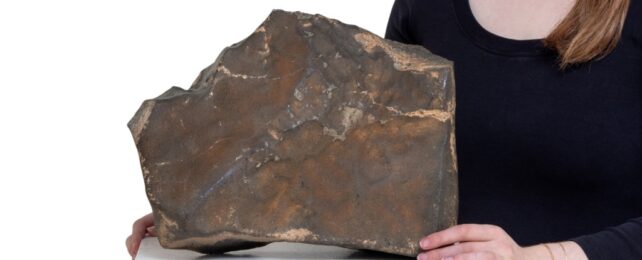The most massive chunk of Mars ever found on Earth could sell for up to US$4 million in a Sotheby's auction later this month.
Believed to be the largest individual Martian rock recovered so far, the meteorite (officially named NWA-16788) weighs in at 24.67 kilograms (54.39 pounds). That's about 70 percent larger than the previous record-holder, Taoudenni 002, a meteorite found in Mali back in 2021 that weighed 14.51 kg.
A meteorite hunter came across NWA-16788 in November 2023, in the sparsely populated Agadez region of Niger, which is far better known for its dinosaur fossils than its meteorites. The Shanghai Astronomy Museum confirmed the rock's Martian identity based on a small sample sent there, and now this interplanetary treasure has a price tag, too.
Related: Man Keeps a Rock For Years Hoping It's Gold. It Turns Out to Be Far More Valuable.
The meteorite "shows minimal terrestrial weathering, indicating that its physical and chemical makeup have not been significantly altered since its arrival in the Sahara Desert," the Sotheby's listing explains.
"In other words, NWA-16788 is likely a relative newcomer here on Earth, having fallen from outer space rather recently."

Based on the high percentage of a glass called maskelynite, and a few shock-melted areas, we know that this rock was probably sent flying when a severe asteroid crashed into its home planet.
The Sotheby's listing states the meteorite was "formed from the slow cooling of Martian magma and [is] characterized by a coarse-grained texture composed primarily of pyroxene, maskelynite, and olivine."
Some scientists question whether such a rare specimen should be up for sale.
"It would be a shame if it disappeared into the vault of an oligarch," paleontologist Steve Brusatte from the University of Edinburgh told Jack Guy at CNN. "It belongs in a museum, where it can be studied, and where it can be enjoyed by children and families and the public at large."
But planetary scientist Julia Cartwright from the University of Leicester gave CNN a different opinion: "The scientific interest will remain, and the new owner may be very interested in learning from it, so we may still gather lots of science from this."
The Sotheby's auction will begin on July 16 at 14:00 UTC.
